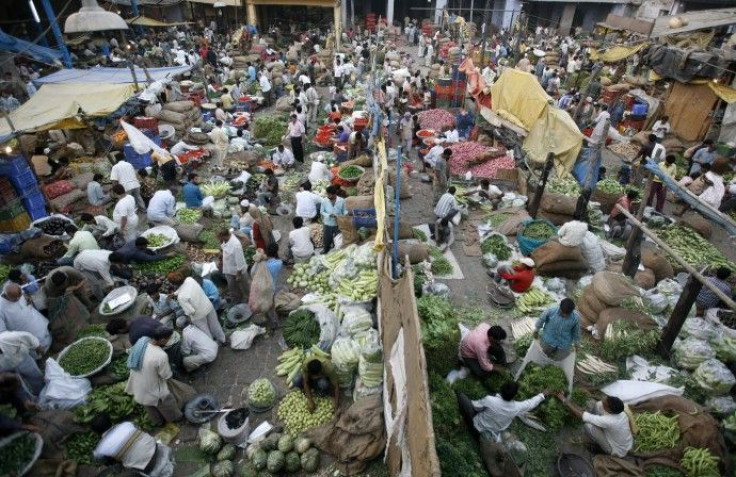Food inflation eases in early February

India's food inflation eased to a two-month low in early February on moderating prices of onions and other vegetables, amid expectations the government may announce fresh measures to boost productivity for key staples in the upcoming budget.
Indian food inflation is among the highest in Asia despite good harvests.
Overall headline inflation remained stubbornly high at more than 8 percent in January despite seven rate hikes by the Reserve Bank of India since March, with more tightening expected at the bank's mid-quarter policy review next month.
The data indicates that February WPI inflation is likely to fall further. This would mean less urgency for the RBI to accelerate the tightening cycle, said Dariusz Kowalczyk, senior economist and strategist at Credit Agricole CIB in Hong Kong.
Markets were little moved by the data, although the rupee extended gains to 45.36 per dollar from 45.40 earlier.
Finance Minister Pranab Mukherjee is expected to announce measures at the Feb. 28 budget to boost productivity of milk, fruit and vegetables, while holding off on a pending reform to deregulate diesel prices, which would likely fuel inflation.
India's food price index rose 11.05 percent, the lowest reading since the first week of December, and the fuel price index climbed 11.92 percent in the year to Feb. 5, government data on Thursday showed.
I expect by the end of March the food inflation could come down to around 8 percent due to arrival of foodgrains in some pockets and cooling of the speculation component in the commodity markets, said N.R. Bhanumurthy, an economist at the National Institute of Public Finance and Policy, a Delhi-based think-tank.
Food prices have risen around 14 percent since March 2010 and the Reserve Bank of India, which is expected to raise rates by another 25 basis points next month, wants the government to pursue fiscal consolidation in the budget to rein in inflation.
Wholesale food prices jumped 15.7 percent in January compared with 13.6 percent in December, fuelling fears that food inflation is leading to sustained price rises in other sectors of the $1.3 trillion economy.
The primary articles index was up 14.59 percent easing from an annual rise of 17.05 percent a week earlier.
Global food prices are soaring, prompting a stark warning by the World Bank chief on Tuesday that prices had reached dangerous levels.
India's poor infrastructure and low agricultural productivity add to inflationary pressures.
Prime Minister Manmohan Singh said on Wednesday headline inflation could come down to no more than 7 percent by March-end.
Oil prices are rising, the food prices are rising, commodity prices are rising. We have to deal with inflation despite an adverse international environment, he said.
World Bank data showed that high prices of food, mainly wheat, maize, sugars and edible oils, have pushed 44 million more people in developing countries into extreme poverty since June 2010.
The Group of 20 leading economies, whose finance chiefs meet on Friday and Saturday in Paris, has promised to take action on rising food prices.
© Copyright Thomson Reuters 2024. All rights reserved.











